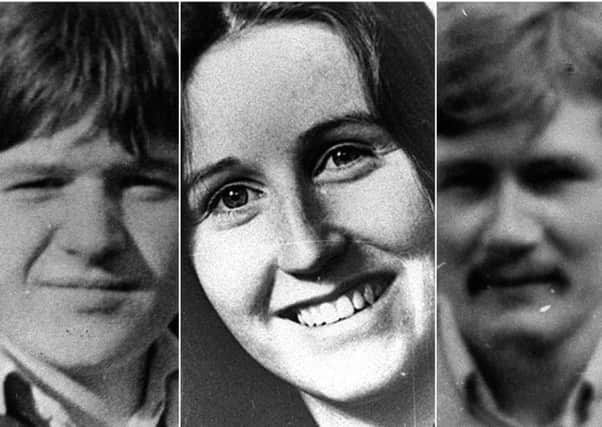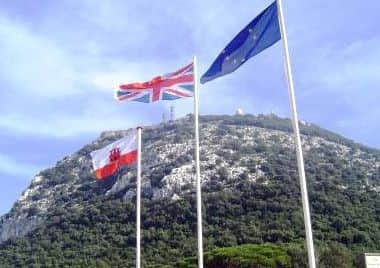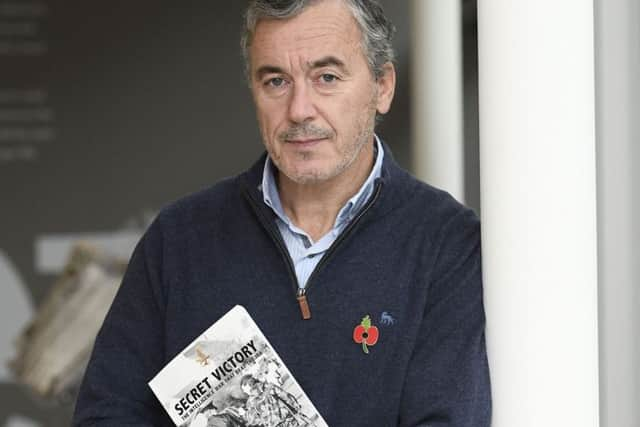William Matchett: SAS Gibraltar operation against IRA looks increasingly justified in post-9/11 terrorism era


The target was the changing of the guard at the Governor’s residence, a popular tourist attraction. The means was a no-warning car bomb, a terrifying weapon.
In keeping with Provo operations ‘overseas’, Gibraltar was sanctioned by the leadership and shrouded in extreme secrecy. The purpose was to make it as hard as possible for the security forces to prevent.
Advertisement
Hide AdAdvertisement
Hide AdTo this end, a special unit run by General Headquarters (GHQ) was used that sat outside the normal brigade structure. It contained some of the most violent and committed people in the organisation who could be trusted to get the job done.


An innovative step for the time was women in the unit. It gave more options in operating ‘behind enemy lines’ and attracted less attention than an all male setup.
In 1985, Martina Anderson was arrested with the rest of a GHQ unit in Glasgow and convicted of conspiracy to cause explosions in England. In 1973, Gerry Kelly was another, convicted with a set of sisters for a bombing campaign also in England. GHQ units brought the fight into the ‘Brits’ backyard.
As it turned out, for the unit in Gibraltar things did no go to plan. Danny McCann, Sean Savage, and Mairead Farrell were shot dead by the SAS. Coming less than a year after the SAS wiped out the Provos East Tyrone brigade at Loughgall, it was another serious setback for the ‘armed struggle.’
Advertisement
Hide AdAdvertisement
Hide AdThe leadership of the Provisionals knew that it was losing the crucial intelligence war but had to keep this hidden from the frontline. To ‘volunteers,’ Loughgall and Gibraltar were explained as “lucky one-offs.”


As the republican movement buried the Gibraltar trio at Milltown Cemetery, UDA terrorist Michael Stone attacked the mourners, murdering three: Caoimhin MacBradaigh, John Murray and Thomas McErlean. Stone was caught by the crowd in trying to escape and arrested by the police.
In contrast to the carefully planned attack in Gibraltar, it was amateurish and typifies the reactionary nature of loyalist terrorism. Unlike the Provisionals, loyalist terror groups had no strategy and were unaware or uncaring that the Provos relied on pulling them onto a punch and into the fight. Loyalist violence played into the Provos’ hands. It was self-defeating.
The Provos were better at terrorism than loyalists and far better at propaganda. They were inveterate liars; otherwise what they really did would be exposed. Rarely did the mask slip so spectacularly than at the funeral of one of Stone’s victims.
Advertisement
Hide AdAdvertisement
Hide AdTwo soldiers in civilian clothes in a car, unfamiliar with Belfast, took a fateful wrong turn. By the time they realised the mistake it was too late. A hate-filled republican horde like a hungry pack of wolves set upon them. Although armed, neither shot at their assailants. It was remarkable restraint.


The television footage of Corporals David Howes, 23, and Derek Wood, 24, shows that they were not a threat to those who held them. They were prisoners. Despite marketing themselves a bona fide army, the Provos brutally beat and summarily executed both men. It was a gross abuse of human rights and humanitarian law.
In the ‘corporals murders’ the world got a rare glimpse of Provo savagery and hypocrisy and the sickening triumphalism of their supporters.
Ultimately, physical steps taken to commit mass murder in Gibraltar caused a security response to stop it and set two other fatal events in motion. It is that simple. The GHQ unit was on ‘active service.’ These were not innocent civilians but hard-core members of an illegal terrorist organisation on the cusp of killing around 60 people. Stopping them saved lots of lives.
Advertisement
Hide AdAdvertisement
Hide AdUnknown to the soldiers, it was a dry run and not the bomb run, and the terrorists were unarmed. Several days later, a 140lb Semtex car bomb, three false passports and 200 rounds for a Kalashnikov were recovered in Spain.


In contrast to the terrorists, the soldiers had to think of the threat to civilians. For all those who would have been at the Governor’s residence, the intelligence-led operation prevented them becoming victims. In their eyes, better the intervention was too early than too late. This is why the jury at the coroners court in Gibraltar gave a verdict of lawful killing. From the standpoint of the local community who would have suffered terribly, there was relief and thanks that an atrocity had been averted and little sympathy for the perpetrators.
The families supported by Provisional Sinn Fein, however, disagreed. They saw the three GHQ members as victims and sought legal redress in Europe, with some success. Whilst the court ruled that the soldiers believed life was in danger, and in this respect the killings were lawful, it was the procedural aspect that violated Article
2 (right to life) of the European Convention on Human Rights.
Advertisement
Hide AdAdvertisement
Hide AdTen judges to nine ruled that the intelligence had false assumptions, queried why the suspects could not have been arrested at an earlier stage and concluded that police officers should have been used instead of soldiers.
According to the court, police officers were more inclined not to shoot. Europe did not have to wait long to test the thinking. In a counterterrorism operation in London in 2005, just after the 7/7 attack, police shot dead Jean Charles de Menezes, an innocent civilian. More recently, different police organisations across Europe have shot dead unarmed jihadists.
Contrary to what the court claimed. In a counterterrorism context, there was no difference in how soldiers and police tackled suspects in a scenario where a bomb could be instantaneously detonated.
The ruling, in my opinion, is bad case law. I seriously doubt that the same judgement would have been reached in a post-9/11 era where terrorism is more common than it was in 1988 and people’s knowledge of it not as limited. Gibraltar spotlights security policy that pushed the Provos to peace and the foray into Europe’s legal system shows what they wanted this to look like.
Advertisement
Hide AdAdvertisement
Hide AdMartina Anderson is an MEP in Brussels, Gerry Kelly an MLA in Belfast and Michael Stone a prisoner in HMP Maghaberry. Provos are praised, their murders ignored and security forces condemned. A peace process, they call it. Justice, they say.
• Dr William Matchett is author of Secret Victory: The Intelligence War that Beat the IRA and Adjunct Fellow at the Edward M Kennedy Institute for conflict prevention, Maynooth University, Ireland.